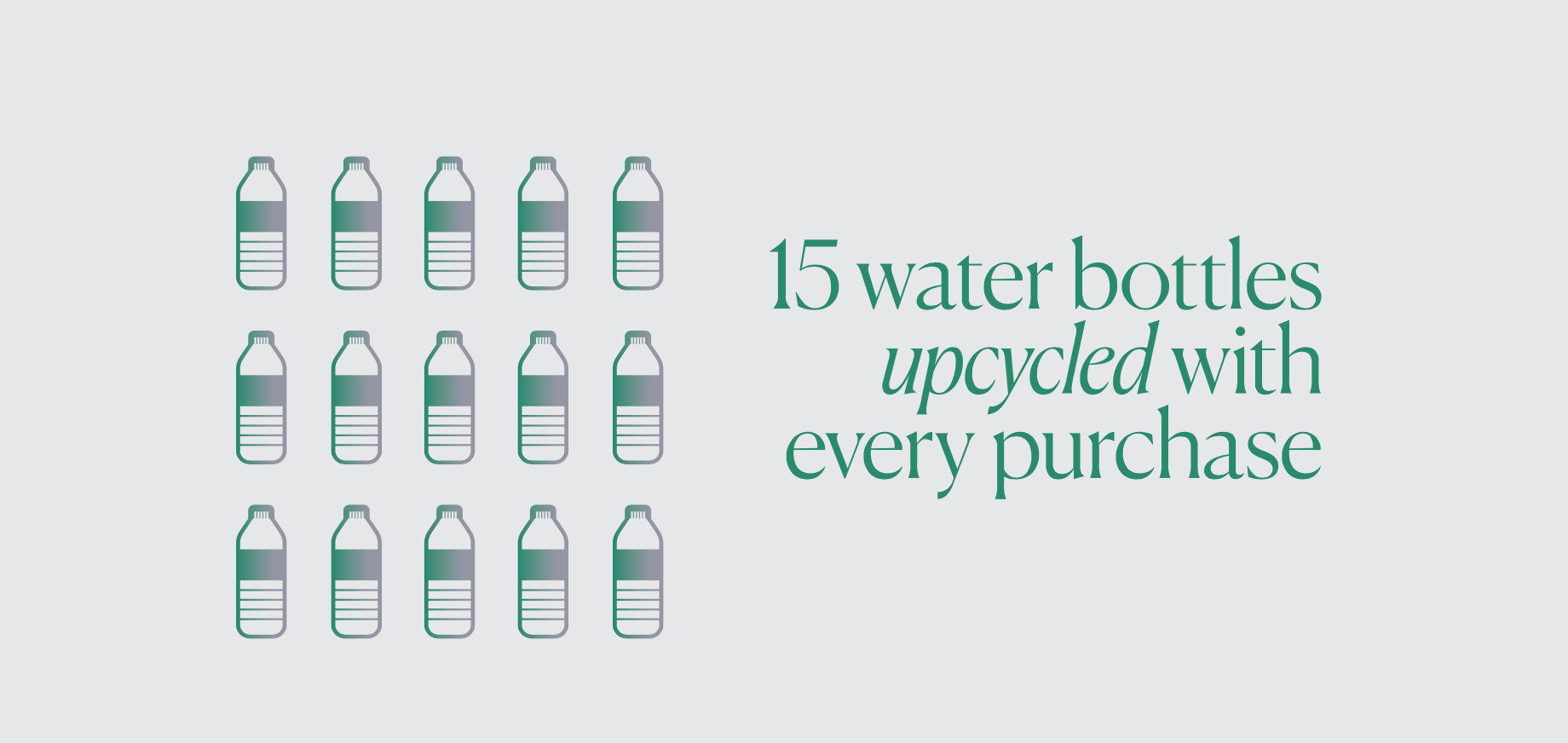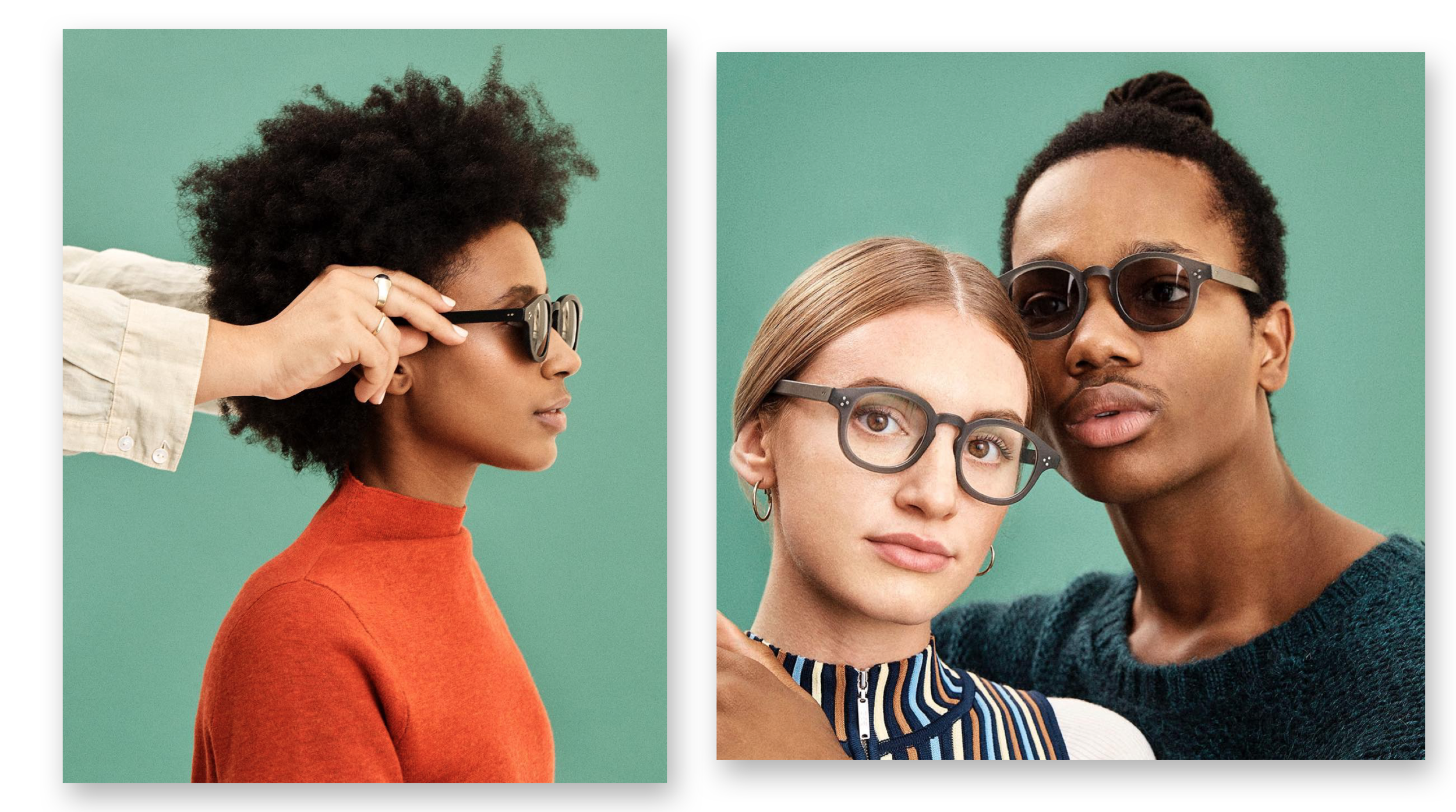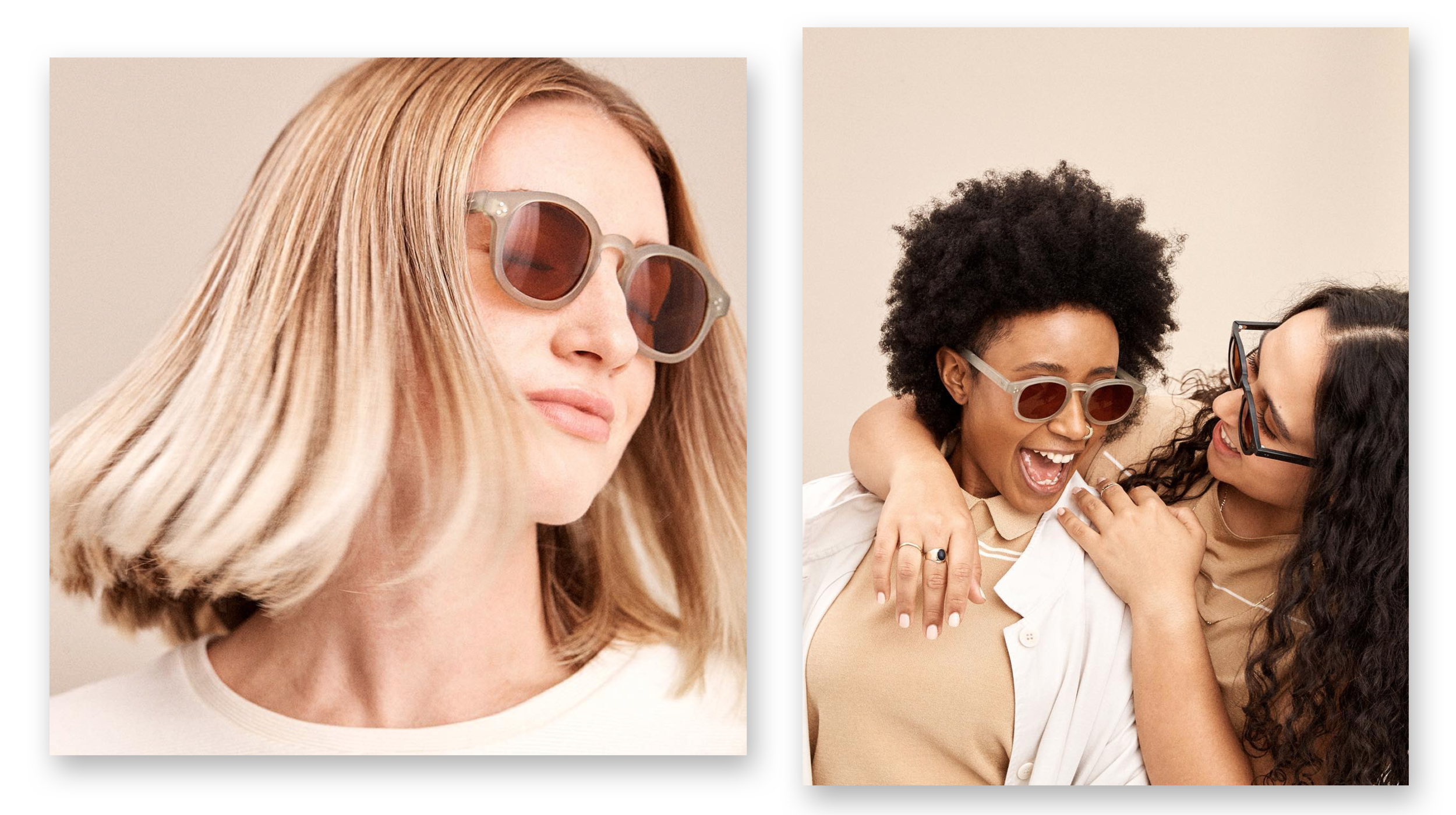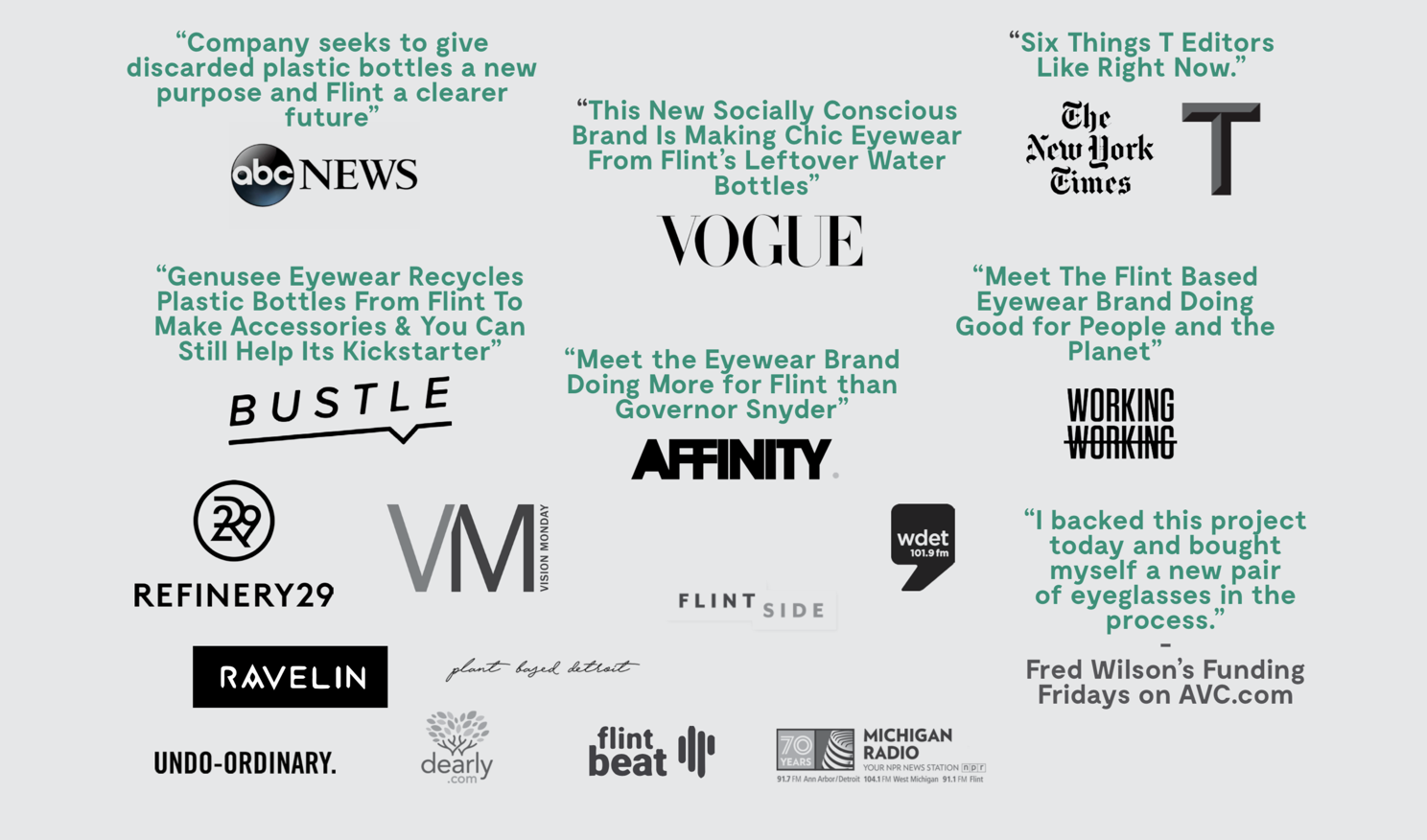Tackling plastic waste in the fashion industry
Genusee is the world’s first circular economy eyewear company. Pioneering and reinventing sustainable eyewear from the ground up. Each pair of glasses uses 15 recycled water bottles to manufacture the product in Flint, Michigan.
Client: Genusee
Role: Head of Digital Experience
Work: All things digital to turn a startup into a celebrated brand. Everything from brand strategy, social media, digital marketing, to creative and digital design.
Time: 2018
Building a new model for conscious consumption
Genusee wanted to pave the way and create a new model for conscious consumption. It was founded to address the plastic waste problem in Flint, Michigan.
It all begin with a national political crisis in the United States. At the height of the Flint Water Crisis, 20 million water bottles were being used per day. Alongside the environmental crisis, the city’s citizens suffered from lead poisoning as a result of a contaminated water source. Genusee’s co-founders had a vision — to create a new manufacturing legacy in Flint by turning waste into products of purpose.
The traditional linear retail model is broken
We buy, use and then discard our products. For example, plastic products take anywhere from five to 600 years to break down. Our current path of production and consumption is unsustainable.
What we set out to achieve
Creating a voice
Constructing a central document for the brand meant asking deeper questions, understanding the vision, and reflecting on how it manifests to the public. This was done by asking reflective questions such as:
Why do we exist?
Who is this brand for?
How do we benefit our customers?
What makes us different?
These answers helped me better understand the context of the brands founding history, while connecting it towards its future vision. I developed a brand strategy document that helped consolidate scattered ideas into a unified message for internal and external collaborators.
Disrupting the linear economy model
We set out to redefine the linear (take-make-waste) model of consumption by pioneering the world’s first in circular economy model within the eyewear industry.
To make the vision tangible, a “buy-back program” was developed to encourage conscious consumption. It incentives customers to send back their glasses and in return get a percentage discount on their next pair of glasses.
Refreshing the digital experience
Previous creative prior to re-launch















